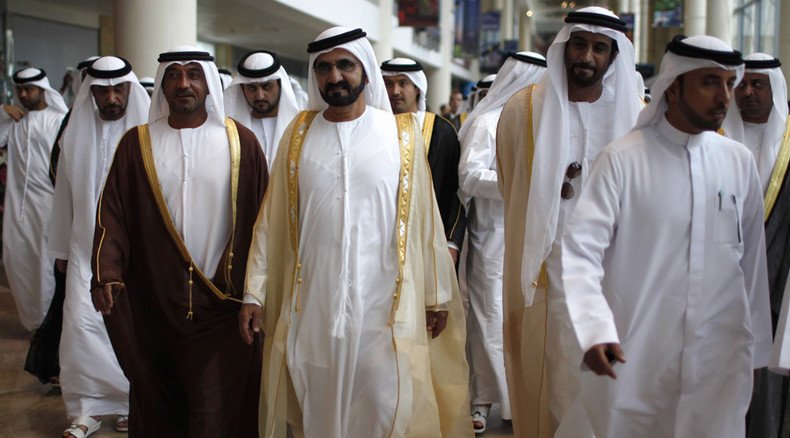British arms sales contribute to Middle East, N. African defense corruption – study

The vast amounts of arms sold with minimal oversight to Middle Eastern and North African states by the UK and other western nations have increased corruption, spread extremism and destabilized the region, a study has found.
The report, published by Transparency International, lists 17 nations across Middle East and North Africa (MENA) in which defense budgets are being ramped up and more weapons are being poured in from willing western nations.
The report’s author warns that unless the nations selling arms take responsibility they will end up exacerbating future conflicts in an already destabilized region.
READ MORE: Saudi blogger and British grandfather spared extreme punishments, Hammond hints
“This is one of the most unstable and conflict riven regions in the world,” Katherine Dixon, head of Transparency International’s Defense and Security Program told the Intercept.
“Over a quarter of the world’s most secretive defense spending is in the Middle East. Corruption puts international security at risk, as money and weapons can be diverted to fuel conflict,” Dixon added.
Saudi Arabia, a close ally of the UK, increased its military expenditure by 17 percent between 2010 and 2015, making it the biggest market for arms in the region.
Covert trading in arms is standard practice, the report claims, with only Jordan and Tunisia publishing their defense budgets. Of the two, only Tunisia has a parliamentary committee on defense to oversee spending.
“Secrecy across security and defense establishments remains the norm,” the report claims.
Corruption sometimes expresses itself through weapons going missing, often having been sold on by people within the military hierarchy of a given state.
“There’s examples of planes and ships going missing that have been provided by the US,” Dixon said of missing arms in Iraq. “It feels pretty difficult to lose a ship and a plane.”
She also pointed out that when such states collapse, the arms do not simply disappear.
Turning her attention to the violent sectarian war currently tearing apart Yemen, Dixon said: “When the Houthi rebellion arrived in the capital, Sanaa, the armed forces were unable to respond effectively.
“Some of the weaponry currently in the hands of the Houthis was acquired straight from those elements of the Yemeni army which had received security equipment.”
According to the report the three biggest arms sellers to the region are the United States, Russia and Germany.












